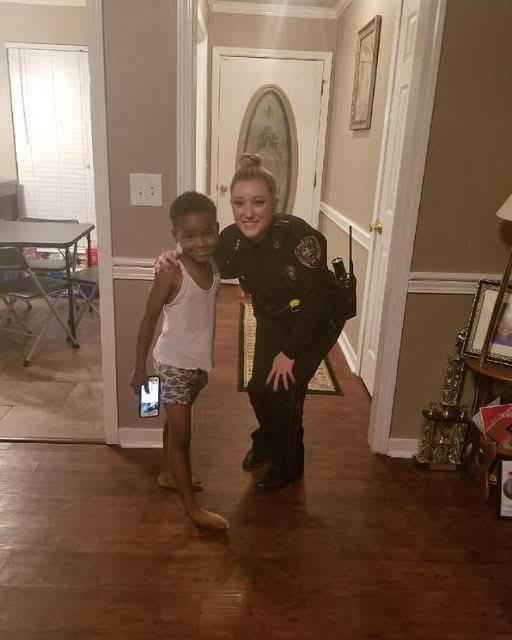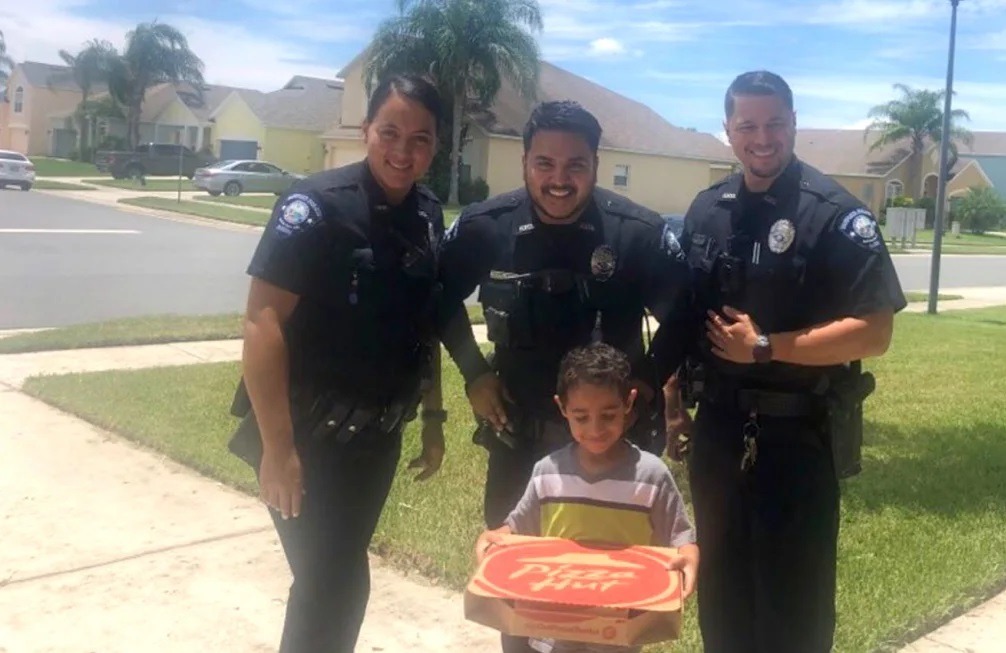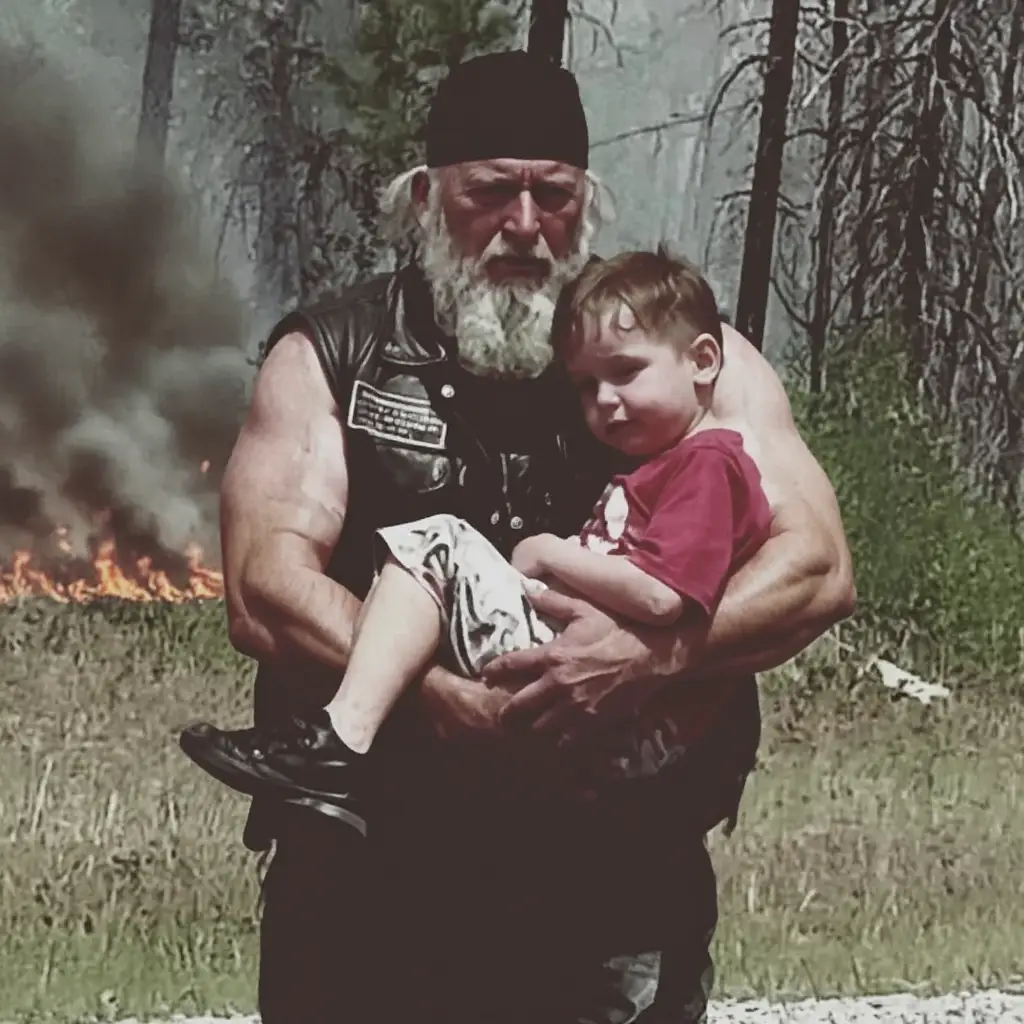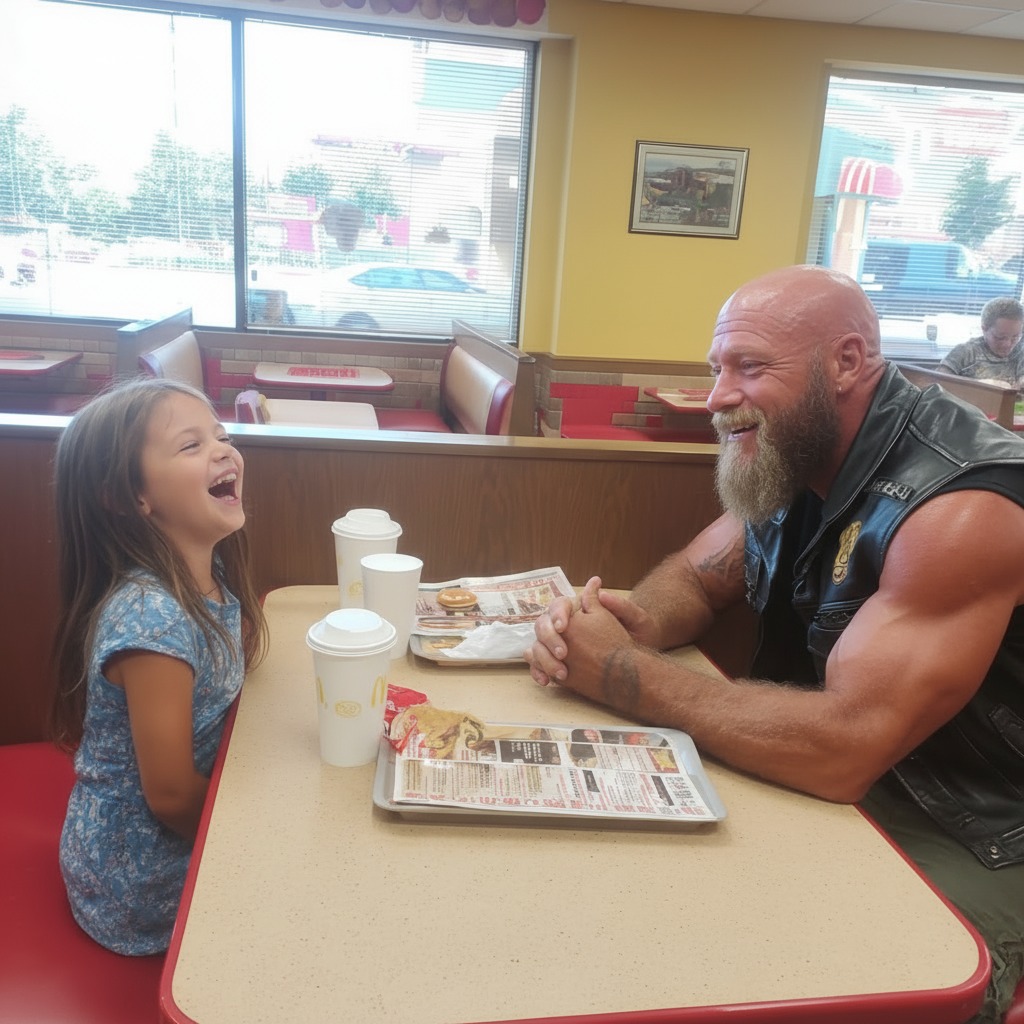A Silent 911 Call, A Hungry Child: It was just after 9:30 p.m. when my phone buzzed. I had just finished tucking in my youngest for the night and was settling in when the call came through—dispatch flagged it as a silent 911 from a mobile phone, possibly dialed by a child. The location was only a few blocks away, so I headed out without hesitation.
A Silent 911 Call, A Hungry Child, and the Unexpected Hero Who Showed Up With a Sandwich”
The house was modest, lights dim, and the porch steps creaked under my boots. When I knocked, the door cracked open and a boy—no older than eight—stood barefoot in pajama shorts, clutching a cell phone like it was his lifeline. His name was Mateo. His wide, dark eyes searched mine, unsure but resolute.

“I’m hungry,” he said simply. “We don’t have any food.”
Behind him, the small home was neat but barren—clean countertops, but the refrigerator was nearly empty: just an old jug of milk and a few ketchup packets. I asked about his parents, and he shrugged. His little sister, Sofia, was asleep in the back room. He explained that their mother worked long hours—two jobs, sometimes more—and had left early that morning for a diner shift. She hadn’t made it home yet.
I crouched to his level, trying to absorb the weight of it. “Mind if I take a photo with you?” I asked, needing a way to mark the moment—not for records, just for memory. Mateo gave me the first genuine smile I’d seen that night.
I radioed for assistance—not law enforcement, not child protective services. What these kids needed right now was dinner, not interrogation. Within twenty minutes, help arrived. One paramedic, Rosa, walked in with a brown paper bag tucked under her arm.

“You must be starving,” she said softly as she handed him a foil-wrapped sandwich.
Mateo carefully placed it on the table, then glanced toward Sofia’s room. “I should wake her.”
“No need,” Rosa reassured him, placing a second sandwich down. “She can eat when she wakes.”
Mateo hesitated, then unwrapped his meal. As he took his first bite, his entire face relaxed—as if he’d been holding himself together all day. Watching him, I felt a knot in my throat. We take so much for granted—like having dinner ready and waiting.
Rosa and I exchanged a glance. No words were needed. She volunteered to stay until social services arrived. “Let me try calling the mom first,” she said, ever calm. “We’ll figure out the rest.”
Mateo mentioned she worked at Joe’s Diner but that she wasn’t allowed to keep her phone on shift. Dispatch confirmed it—she was there and frantic. She had realized, too late, that she’d left her phone at home and couldn’t check on the kids. When she heard they were safe, she broke down on the line, asking to speak to them.
Social Services showed up shortly after she returned. No arrests. No accusations. Just reminders of the local support programs available—flyers for food pantries, afterschool care, and emergency assistance. Rosa made sure the mom had what she needed before we left.
But it didn’t end there.
Two weeks later, Rosa walked into the station—dressed casually in jeans and a bright yellow sweater, carrying a box of homemade cookies.
“I’ve been thinking about those kids,” she said, setting the box down. “So I did something.”
That “something” turned out to be a grassroots effort she called Midnight Meals—a volunteer-based program that delivered care packages every Friday night to families identified by school counselors and community workers as food-insecure. The boxes included toiletries, canned goods, snack packs, school supplies, and handwritten notes from local students.
It took off like wildfire.
Teachers pitched in books, local grocers donated food, and even teens from the neighborhood helped with deliveries. Within a few short months, Midnight Meals had become a county-wide movement. Rosa wasn’t just responding to emergencies anymore—she was preventing them.
One chilly December evening, Rosa invited me along on a delivery route. One of the stops was Mateo and Sofia’s home. I wasn’t sure what to expect—whether they’d remember me, or whether it might feel intrusive.
When Mateo opened the door, the memory came rushing back. This time, he was warm, well-fed, and smiling, with socks on his feet and Christmas decorations behind him. Sofia stood nearby, holding a small ornament she’d made in school. Their mother greeted us warmly. She had picked up extra weekend shifts, but now had consistent childcare through one of the programs Rosa had connected her to.
“I remember you,” Mateo said to me, and then turned to Rosa. “You brought the sandwich.”
She smiled and handed him a new backpack filled with school supplies. “This time, something for your future.”
His eyes filled with tears as he wrapped his arms around her. “Thank you… for everything.”
As we drove away that night, Rosa looked out the window and said softly, “You know, we see a lot of heartbreak in this job. But every now and then, we get to see what happens when people don’t give up.”
She was right. Sometimes, it just takes one sandwich. One visit. One kind person refusing to look away.
Please share this story. You never know who might be inspired to be someone’s Rosa.

Together, small acts of compassion can ripple outward and rewrite someone’s story—for good.




